If you’re a new niche business owner or a marketer who wants to work in a specialized marketspace, and you’re looking for ideas on how to maximize your impact, then this article has got your back.
When working on a niche marketing project, you have to be able to think outside the box. Niche businesses are highly specialized, offering a very specific set of products/services, created and intended for a particular set of customers. As such, common media tactics won’t suffice. Instead, you need a different set of strategies that can highlight the uniqueness of your brand.
You should carefully consider the current market, the needs of your potential customers, and how to keep them continuously engaged. Finding a niche to cater to is only one part of the process, the next is to set up your marketing game.
In this blog post, we will be discussing what catering to a niche in business entails. We’ll show you how to position your brand correctly, and we’ll look at five actionable ways to market it effectively.
What Is a Niche in Business?
A niche in business, or a business niche, is a specialized area in a much larger market. For business owners, this essentially means researching and analyzing the market they want to tap into and find which customer needs are unmet or underserved.
When you find the right niche you will not only be able to create a steady revenue stream, but you will also be able to start building up a loyal audience. And if you really solidify your presence within this highly specialized area you can even ensure that a particular group of clients will buy straight from you, instead of going to your competitors.
Additionally, a specialized business can allow you to charge more for your products and services. And if you’re a pioneer in a new industry sector, you may have a lucrative supply/demand ratio, and become a thought leader and an expert in your field.
How to Find a Niche Market?
Every industry has several niche markets within itself that cater to very unique customer needs. These can be classified as niche business ideas.
Think about reusable straws, GPS pet trackers, and smartphone accessories for travelers. These all satisfy various exclusive customer requirements – saving the planet, keeping track of your pet, and making a traveler’s life easier.
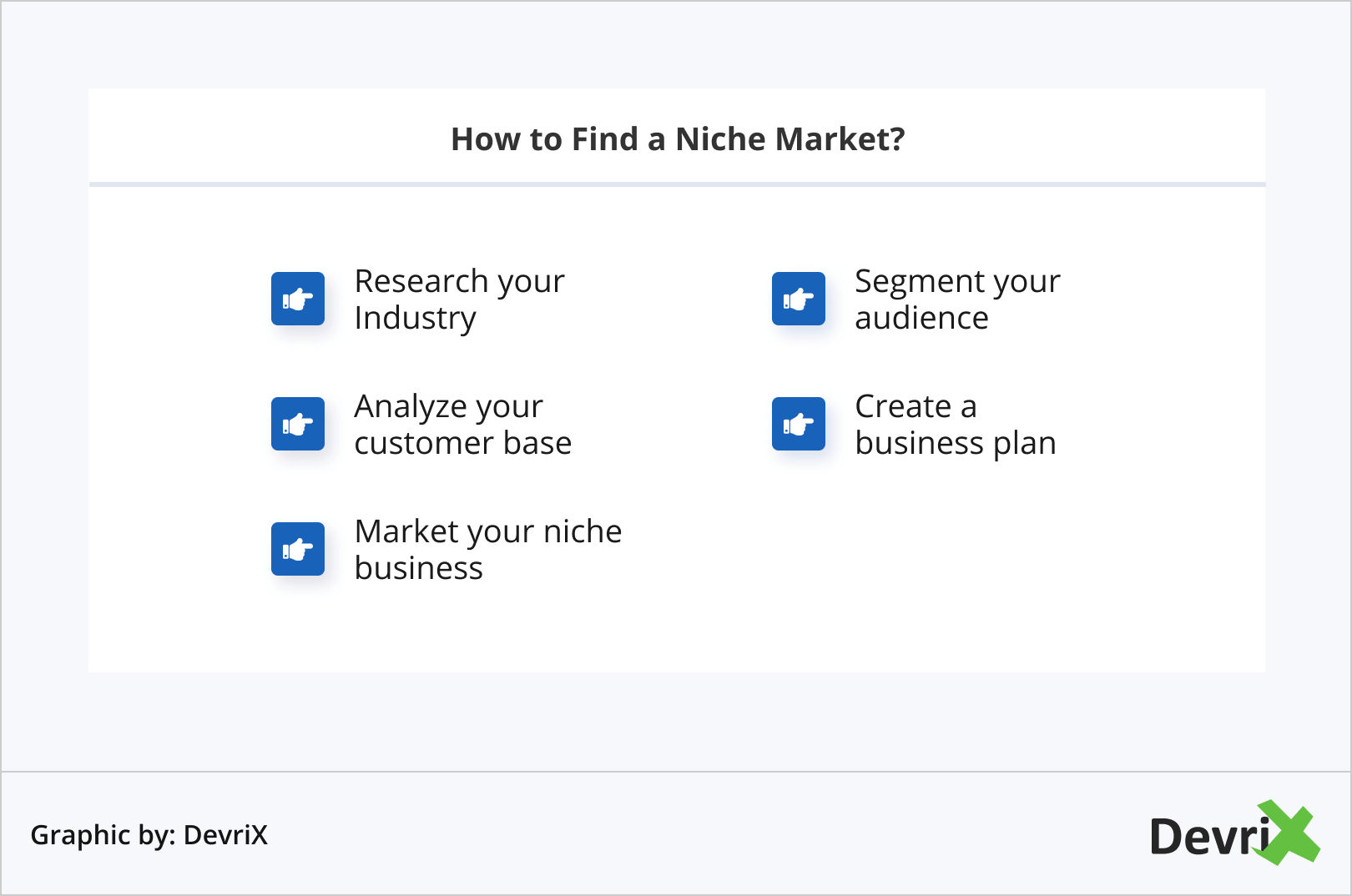
If you’re wondering then, how to find a niche market? Let’s break it down into five steps:
- Research your Industry. Look at the general market. Identify any unmet customer needs. Pick an area that you’re knowledgeable in an outline subtopics within it.
- Segment your audience. Classify your audience based on demographic, psychographic, behavioral, and geographic characteristics.
- Analyze your customer base. Get to know your clientele on a deeper level by working towards understanding their needs, motivations, goals, expectations, and frustrations.
- Create a business plan. Clearly define what you can and will provide and what needs will be met. Create your ideal customer and choose a pricing strategy. Then polish your idea so it reflects your target audience’s needs.
- Market your niche business. Focus your marketing efforts. For instance, to get your message across successfully you can use blog posts, podcasts, or targeted ads.
Use these five points as a pillar to guide your niche business ideas and marketing strategies. Remember to periodically reassess your market to ensure everything flows smoothly.
There are also a few key elements that you should consider when it comes to dominating your chosen specialized market segment.
1. Become a Thought Leader
A thought leader is someone who, thanks to their expertise in a particular field, is considered an authority in that subject. Their opinions are very influential and can sway the audience.
These figures have a powerful personal brand that is visible within an organization and among different industries. Moreover, they have innovative ideas that inspire people to take purposeful actions.
Thought leadership can be very beneficial to your personal and business brand. It can open doors to new opportunities, help you transform your brand, and position your business as a leading power in its microsector.

Here are a few actionable tips that you can take to become an expert in a specialized area:
- Build a personal brand. This will help you differentiate yourself within your industry while developing a leadership role in it. It can also help you frame your marketing messaging, build your online presence, and create the foundation of your authority and credibility.
- Create and manage a blog. Blogging is a great way to get you started on building and strengthening your brand. It will help you provide expert advice that is useful and can set you up as a trustworthy and authoritative source
- Collaborate with influencers. Find other influential figures within your niche and build a relationship with them. Learn from them, offer a new perspective when possible, and collaborate with them and their audience.
- Build a network. In addition to having relationships with influencers, you should also strive to create connections with other industry experts. You can do that by participating in events and engaging in online and offline networking groups.
- Use the power of content marketing. This is an effective way to inform and educate your audience while expanding your reach and increasing your organic traffic.
- Leverage social media. Online platforms can help you grow your following and become a recognized thought leader.
Establishing yourself as an expert in your niche is not a walk in the park. It takes hard work, perseverance, and patience. You need to continuously improve your brand and your image to make sure you stay on top.
2. Populate the Right Online Channels
Today there are different options to reach customers. So you want to concentrate on the channels and tactics that can benefit both your audience and your business growth.
An online marketing channel can be any platform or method used to market a product/service to prospects, thus turning viewers into customers.
There are plenty of channels, mediums, and formats fighting for users’ attention. So it’s important to master only those which truly resonate with your ideal customers.
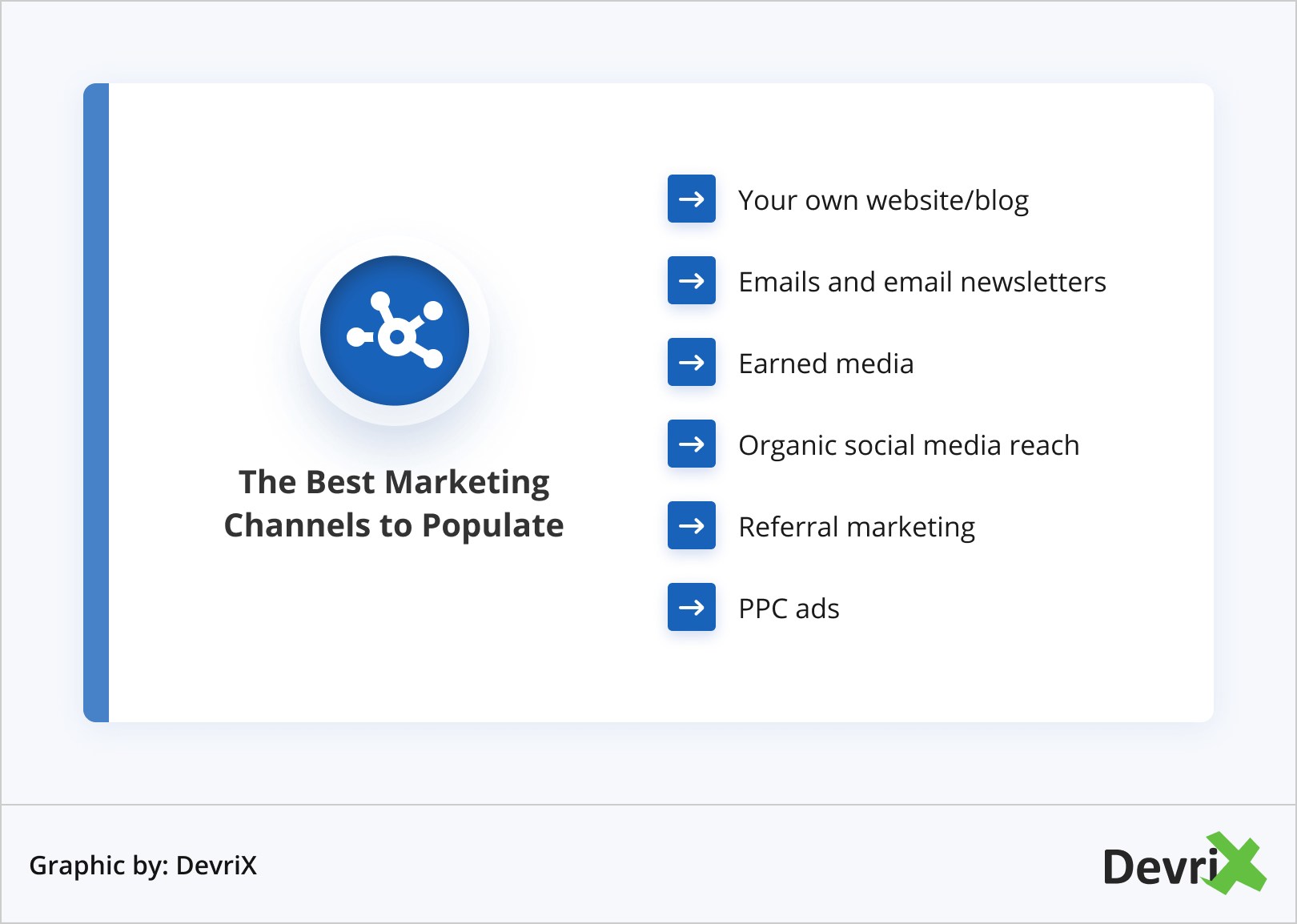
The most effective marketing channels are:
- Your own website/blog. A must-have for any niche business, this is the place where clients can get to know your brand and what you’re about.
- Emails and email newsletters. These offer great ways to follow up regularly with prospects and keep them in the loop of any changes in your business.
- Earned media. Improve your authority within your niche by engaging in link building using trustworthy sources, resharing/retweeting, getting interviewed by someone within your network, etc.
- Organic social media reach. Each social platform has its own unique content distribution, requirements, and specifications. So you should pick the channels your ideal customers use on a regular basis, and maintain a strong presence there.
- Referral marketing. People listen to people. Building a personal connection with your audience is key for separating you from the competition and positioning yourself better within your niche.
- PPC ads. Use these to complement your organic marketing efforts, so you can convert specific prospects faster.
You can always include and remove channels from your niche strategy. Just be well aware of the mediums you’re currently using, how this helps to improve your marketing efforts, and if there are any you would consider putting on pause.
3. Create a Community
Community engagement can strengthen your brand and quickly improve your conversions. Brand communities bring together the most dedicated and loyal customers in one place. This is a fun way for your audience to interact with each other and a huge win for your brand.
A brand community is different from brand awareness. Even though a person knows about your business and has purchased from you, it doesn’t mean that they are truly engaged. A community is composed of people that have an emotional connection to your brand – who follow all your content, share it with others, and enjoy everything you do for them.
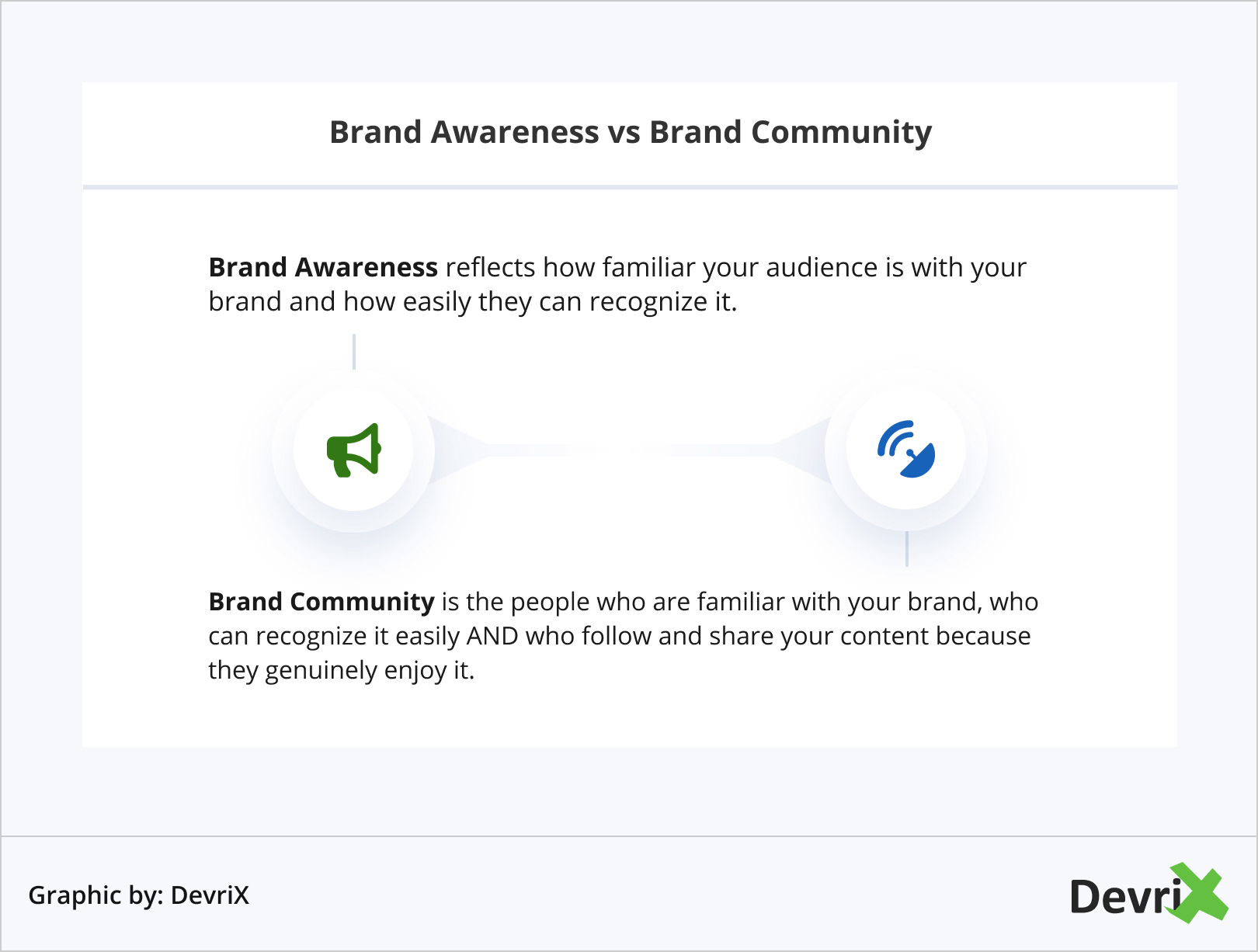
If you operate in a niche market chances are that your community already exists. Your job is to find it, connect with it, and encourage individuals to interact with one another.
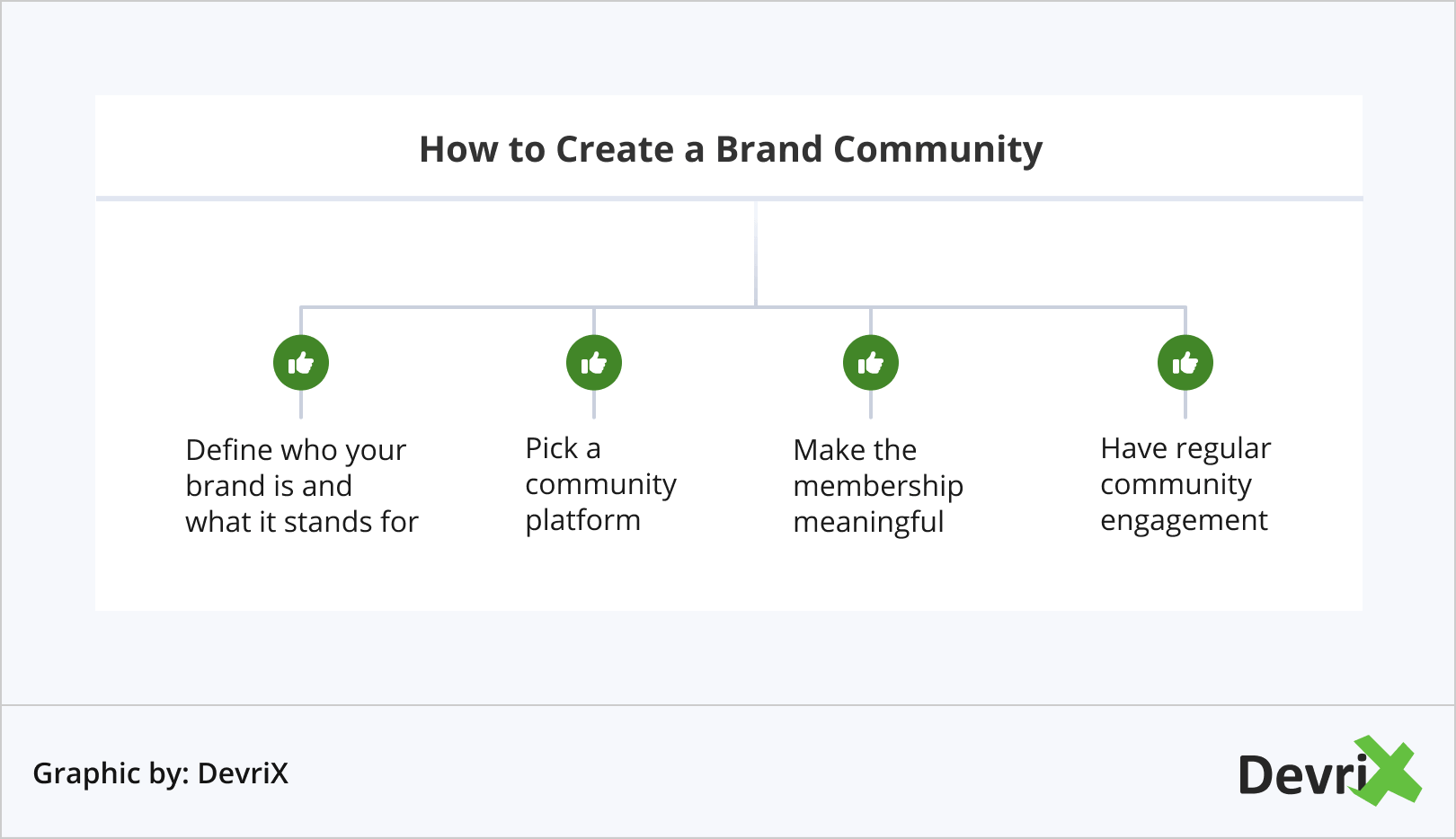
Here are four steps to achieve this:
- Define who your brand is and what it stands for. Find and outline your brand’s mission, vision, purpose, voice, and personality, and clearly communicate them.
- Pick a community platform. Evaluate which platform will satisfy your community’s needs. Consider the size of your audience, how they prefer to engage, what features they will need, what your technical skill level is, and your budget.
- Make the membership meaningful. Provide valuable and exclusive benefits for your community by ensuring: emotional safety, a sense of identification and belonging, personal investment, a common belief system, and exclusive benefits.
- Have regular community engagement. Continuously provide good reasons for your community members to stay involved. Respond to their questions, provide useful resources, encourage discussions, and create space for new conversations.
Anyone can create and recreate a product/service, but nobody can copy the relationship and emotional connection a brand has with its audience.
4. Leverage User-Generated Content
Want to showcase your niche business’ products without looking promotional? Then leverage user-generated content.
This marketing trick works in two ways:
- It’s almost like free advertising for your niche business.
- It provides the perfect opportunity for you to create a connection with those who already love your products.
User-generated content (UGC) is any type of content created by customers, unpaid contributors, or fans of your brand. It includes reviews or testimonials, blogs, and social media posts.
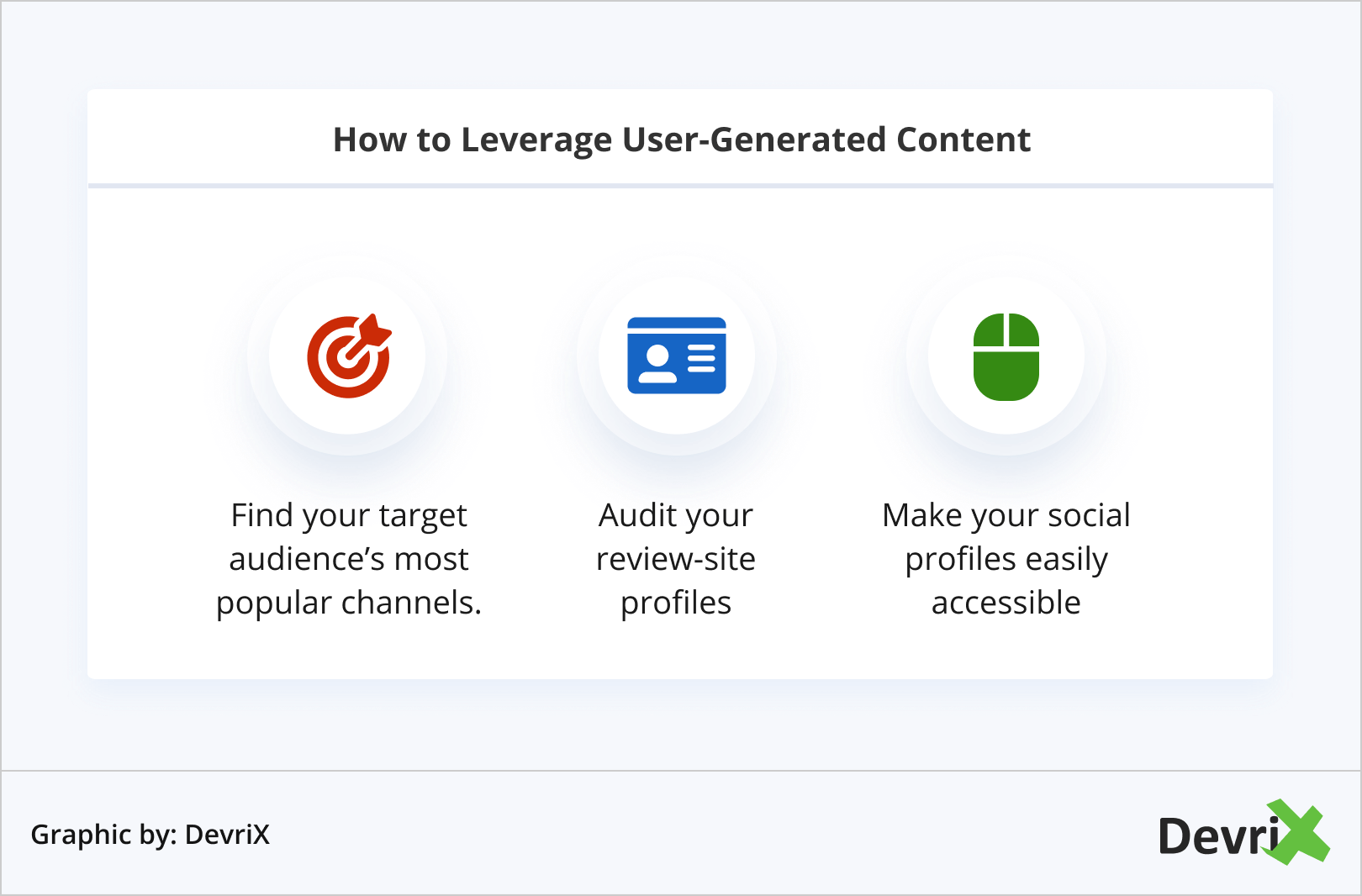
Here are some strategies to help leverage UGC:
- Find your target audience’s most popular channels. Go over the most relevant third-party sites within your niche, and determine which social media channels are most relevant for your viewers.
- Audit your review-site profiles. Find where users leave reviews about your business. Create a profile on those sites, if you haven’t already, and follow up on your audience’s feedback.
- Make your social profiles easily accessible. Your brand should be easy to find when someone reviews it or tags it in a post.
If you plan to share user-generated content yourself, it’s very important to get your audience’s consent. Always credit the user – whether it’s sharing their review, reposting their photo or adding their testimonials on your site.
Read also: WordPress Taxonomies: How to Organize Your Content Strategically [Expert Roundup]
5. Build Partnerships
If you want to gain more exposure for your niche business and enhance customer experience, then partnering with another brand is a smart way to go. Partnership marketing is about establishing a beneficial relationship between two organizations, in a way that one compliments the other equally.
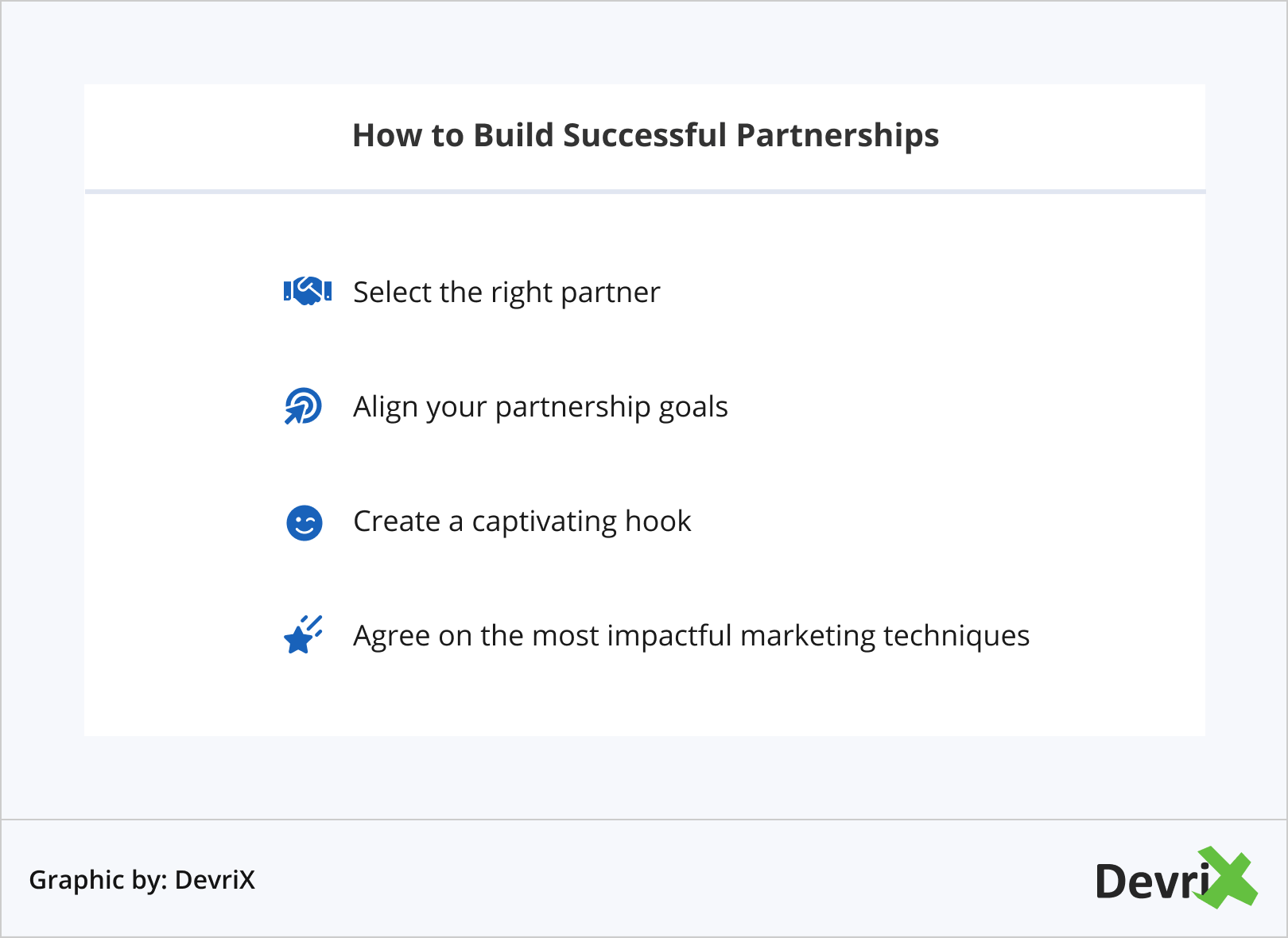
To ensure that a partnership opportunity is the best it can be, consider the following tips:
- Select the right partner. Make sure it’s not an indirect competitor.
- Align your partnership goals. Both parties should target the same audience and have the same reasons for it.
- Create a captivating hook. Think about how you can provide meaningful value for your audience while making the experience fun. Like Spotify and Starbucks did a few years back.
- Agree on the most impactful marketing techniques. For example, a conference, a co-promoted webinar, publishing of original research, guest blogging swaps, online advertising, etc.
As each partnership has its own unique attributes, the aim here is to overcome obstacles to double the marketing power of the two brands.
The Takeaway
When creating and marketing a niche business you have to stay focused. You need to find your area of expertise and concentrate your marketing efforts exclusively on the specifications of the market and your target audience.
Apart from being centered, in order to effectively market as a niche brand, we recommend that you:
- Take thought leadership into account.
- Target the right social media channels.
- Create a strong community.
- Make use of user-generated content.
- Foster a good partnership for double exposure.
With that in mind, let us know which of these tactics inspired you to step up your niche marketing game and how. We’d love to hear your feedback.

![Influencer Marketing Statistics Every Business Should Know [Infographic]](https://devrix.com/wp-content/uploads/2019/10/Influencer-Marketing-Statistics-Every-Business-Should-Know-Infographic@2x-380x160.png)


